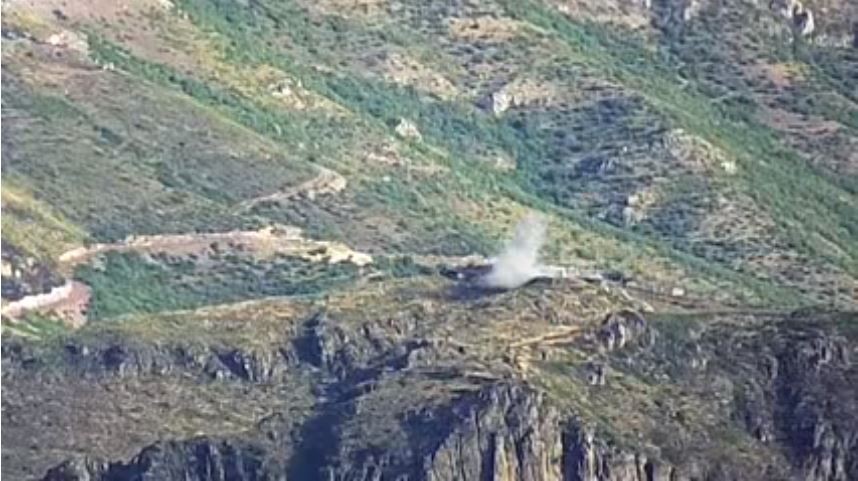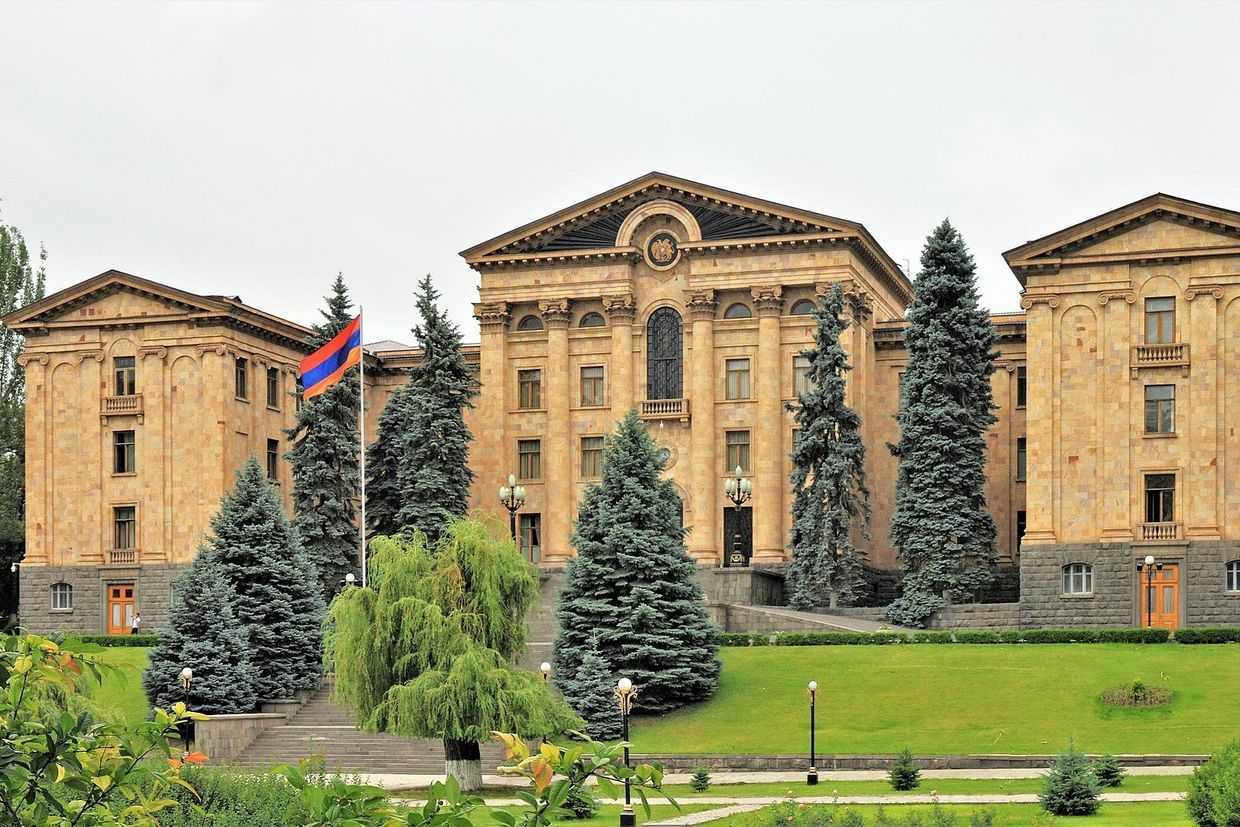
Clashes on the border between Armenia and Azerbaijan have continued for the third day, with the death toll reaching 15 people.
Azerbaijan reported that seven more of its soldiers had died, bringing their losses to 10. A general — Major General Polad Hashimov — was among the dead.
Armenia reported that four of its soldiers had been killed.
The fighting broke out on Sunday afternoon between the Tavush Province of Armenia and Azerbaijan’s Tovuz District. Both sides blamed each other for starting the hostilities.
Both sides have also accused the other of shelling of civilian areas.
In Azerbaijan, a shell fired by Armenian forces purportedly hit the home of 76-year-old Agdam village resident Aziz Izzet-oglu Azizov, killing him. Azizov is the first reported civilian casualty of this most recent escalation.
They also reported that Armenian forces shelled the villages of Dondar Gushchu, Alibayli and Aghdam in Tavuz Province as well as the village of Khanliglar in the neighbouring Gazakh Province.
In response to accusations of the targeting of civilians, Shushan Stepanyan, a spokesperson for Armenia’s Ministry of Defence claimed on Facebook that artillery batteries had been placed near Dondar Gushchu making it a ‘target’.
Armenian authorities also said that the town of Berd, in Tavush Province, sustained damage from artillery fired by Azerbaijani forces, but no civilian casualties were reported. Independent Armenian news outlet Hetq also reported shelling of the village of Aygepar.
Armenian and Azerbaijani authorities have both shared videos of supposed artillery and drone strikes on the opposing side with news organisations as well as on social media.
Hetq reported that Armenian authorities have prevented journalists from entering Berd. The Armenian Ministry of Defence had previously called on journalists not to enter areas of active hostilities, and, in particular, not to conduct live broadcasts.
The websites for the Armenian Government and the Armenian Prime Minister were taken down in an alleged cyber attack on Tuesday. Screenshots of the alleged attack show an image of a soldier in front of an Azerbaijani flag alongside a hyperlink to a speech by Azerbaijani President Ilham Aliyev. Both were operating as usual by evening.
Armenian independent news website Hetq was also offline between 12–13 July, though it is not known if this was the result of hacking.
‘Deeply concerned’
The fighting has elicited reactions, primarily of concern, from states as well as international organisations.
The International Committee for the Red Cross expressed ‘concern’ on Tuesday about the safety of civilians on both sides and stated their readiness to act as ‘a neutral intermediary’.
The Secretariat of the Russia-led Collective Security Treaty Organization (CSTO), of which Armenia is a member, expressed ‘serious concern’ over the ‘aggravation of the situation on the Armenian-Azerbaijani border that arose on July 12’. They called for ‘an immediate restoration of the ceasefire regime’.
Turkish Minister of Defence Halusi Akar stated that Azerbaijan had Turkey’s ‘total support’ in countering what it called Armenia’s ‘provocations’ on the Armenian-Azerbaijani border.
The Co-Chairs of the OSCE Minsk Group, consisting of France, Russia, and the US, and tasked with facilitating negotiations between Armenia and Azerbaijan, condemned the recent ceasefire violations. They called upon both sides ‘to take all necessary measures to prevent any further escalation, including by use of the existing direct communication channels between them’.
They also called for the resumption of ‘substantive negotiations’ as soon as possible and emphasised the importance of returning OSCE monitors to the region ‘as soon as circumstances allow’.
Stéphane Dujarric, the spokesperson for UN Secretary-General Antonio Guterres, said the Secretary-General was ‘deeply concerned’ by the fighting.
‘The Secretary-General urges an immediate end to the fighting and calls on all involved to take immediate steps to de-escalate the situation and refrain from provocative rhetoric’







